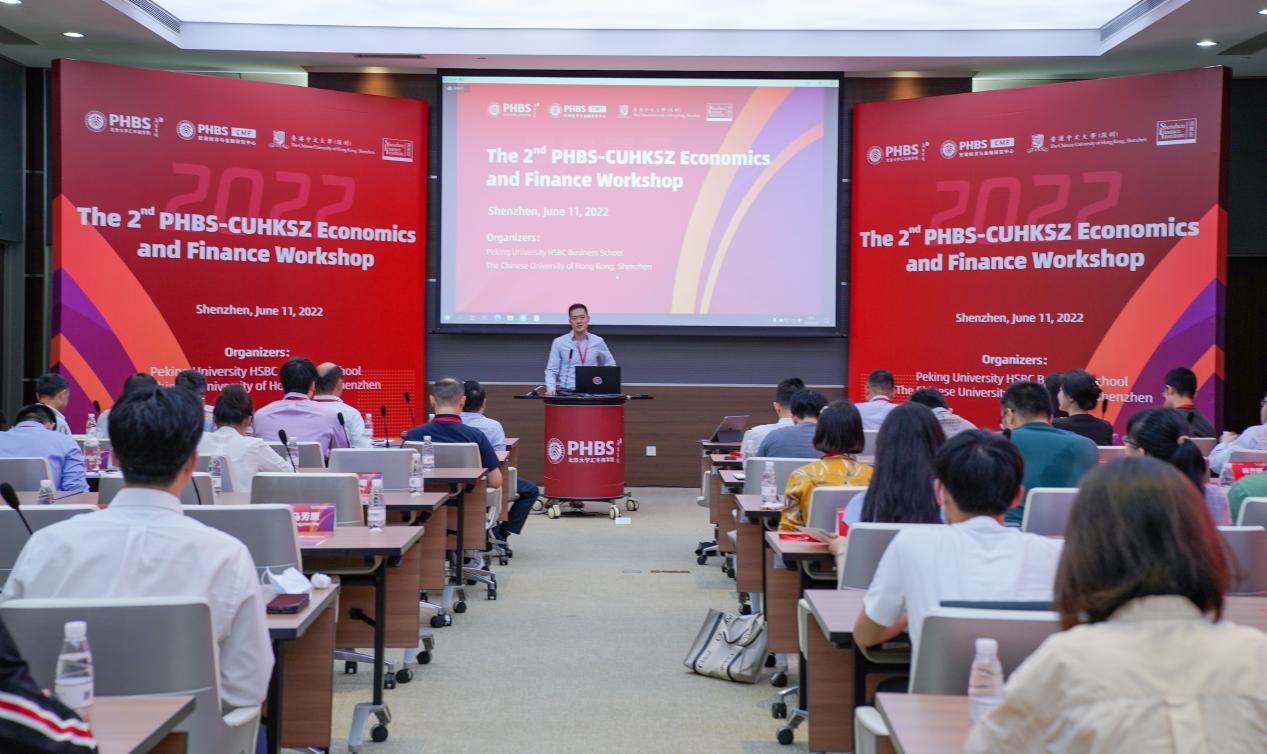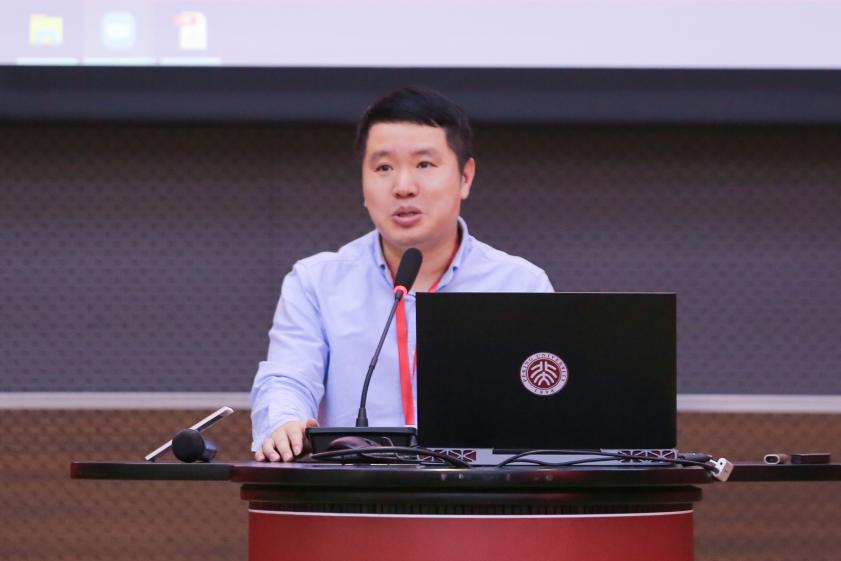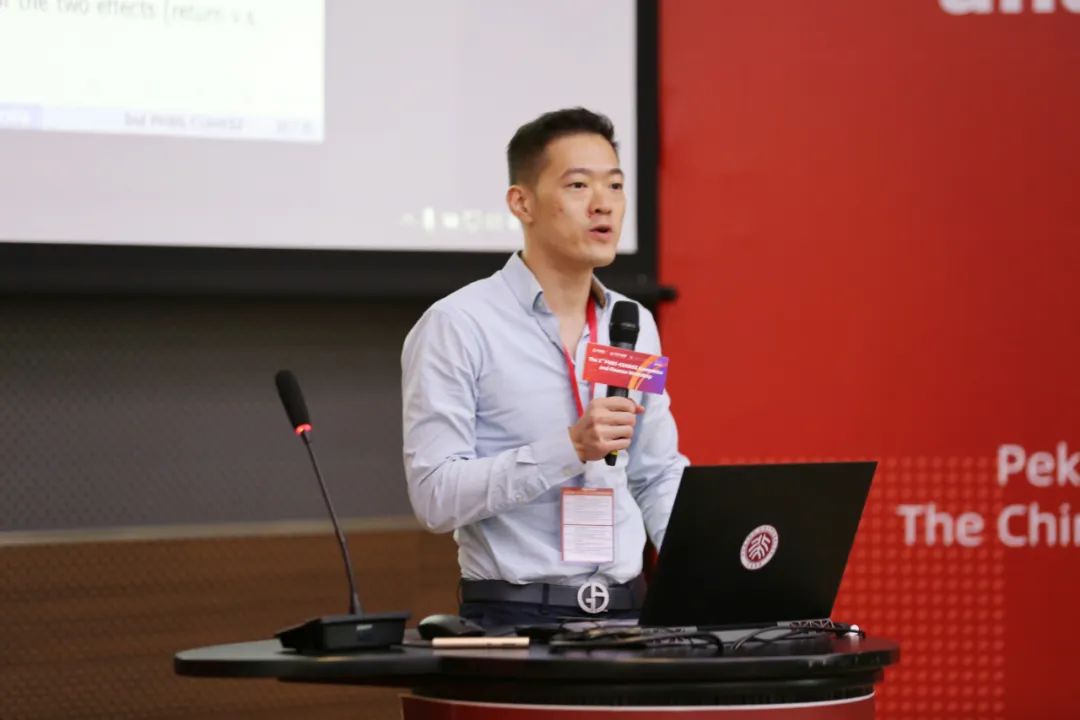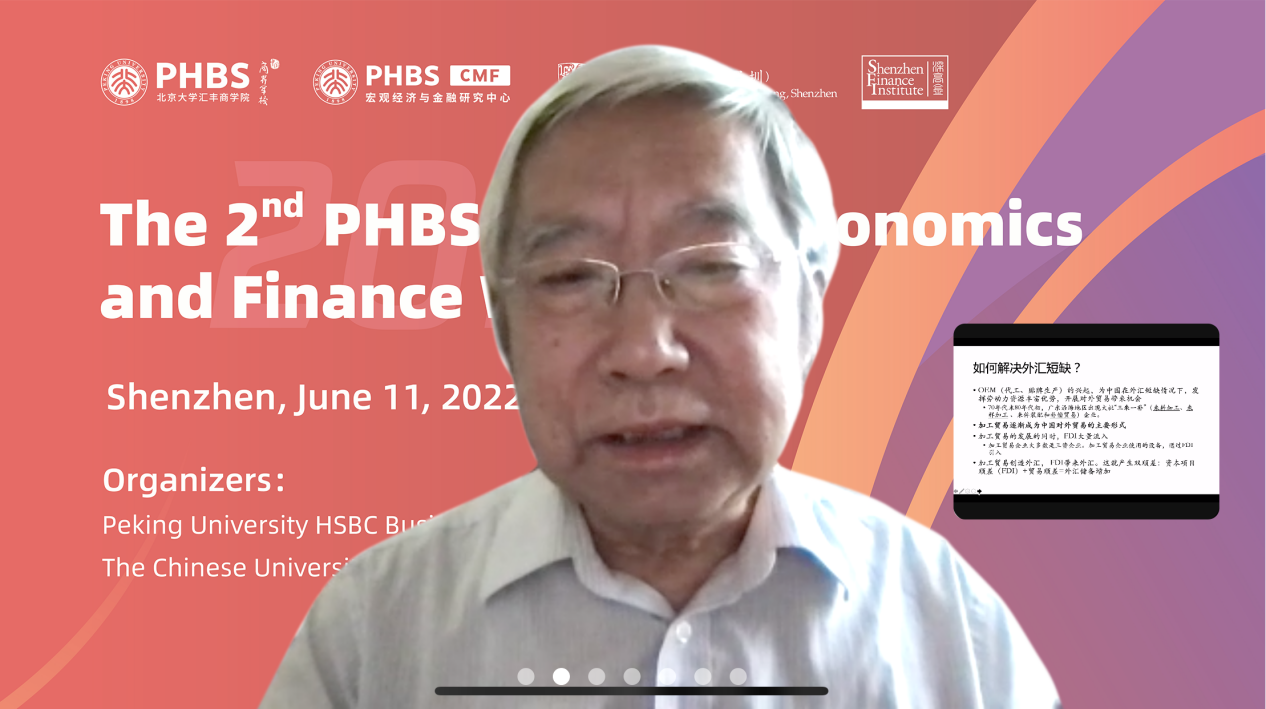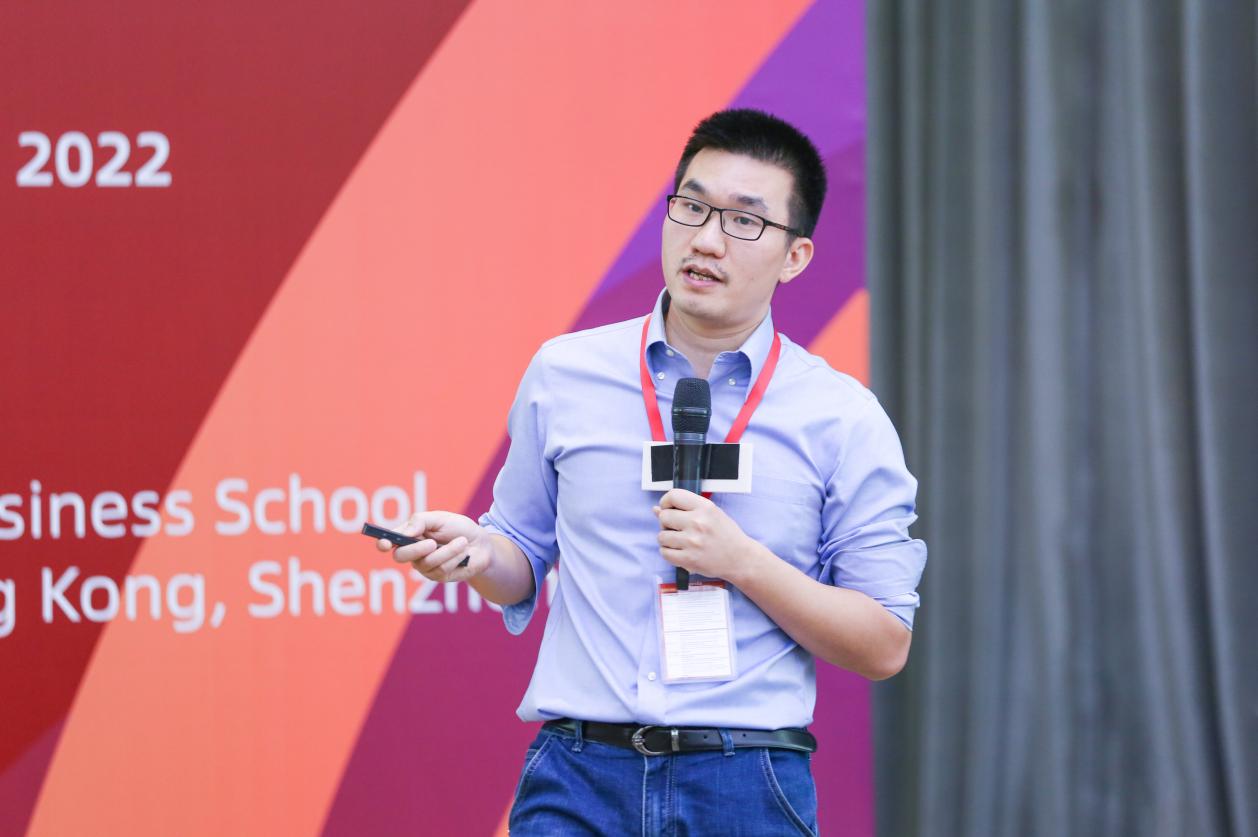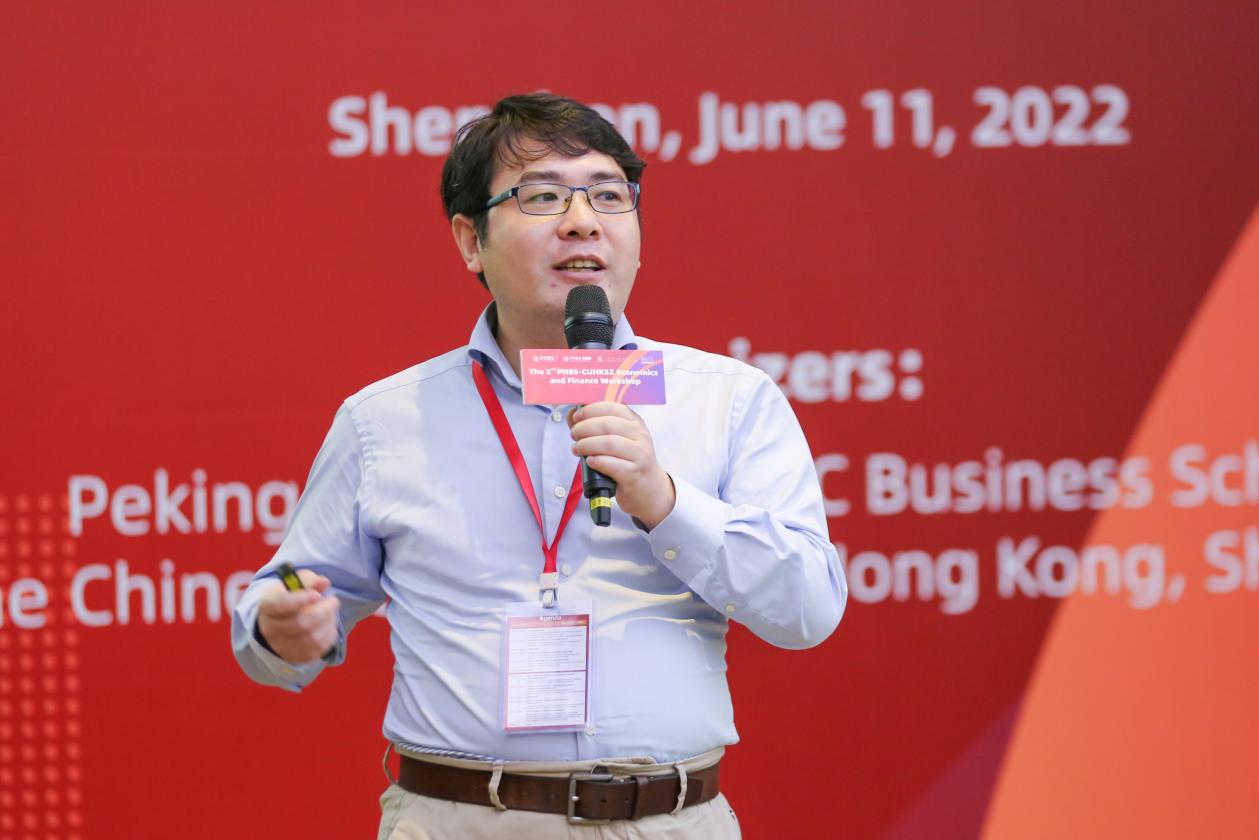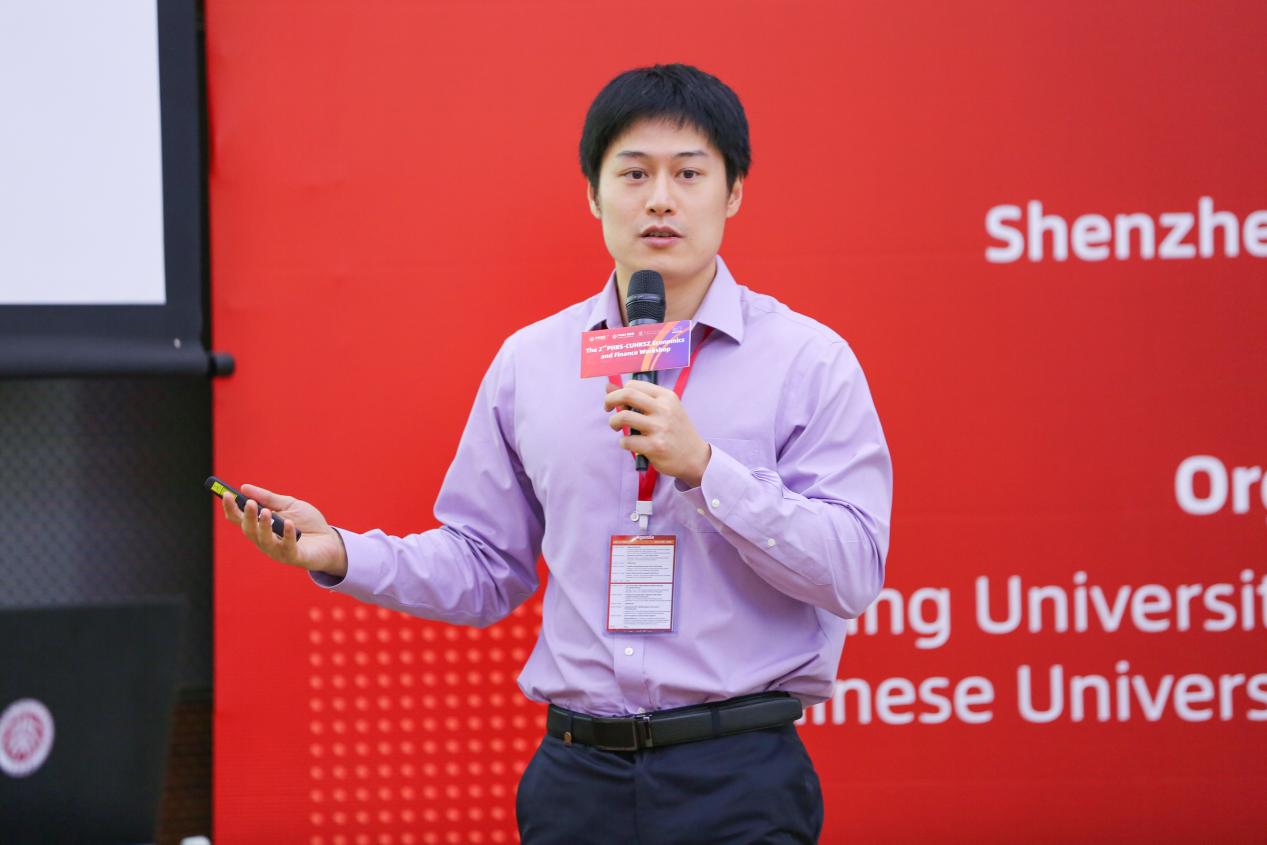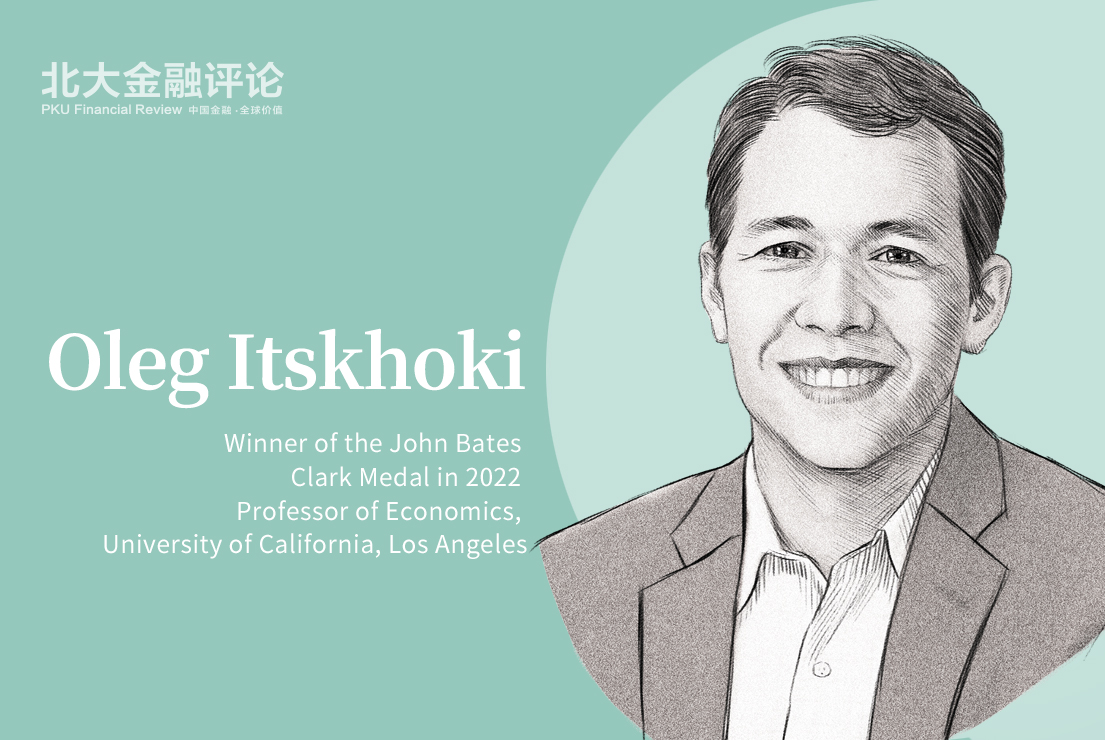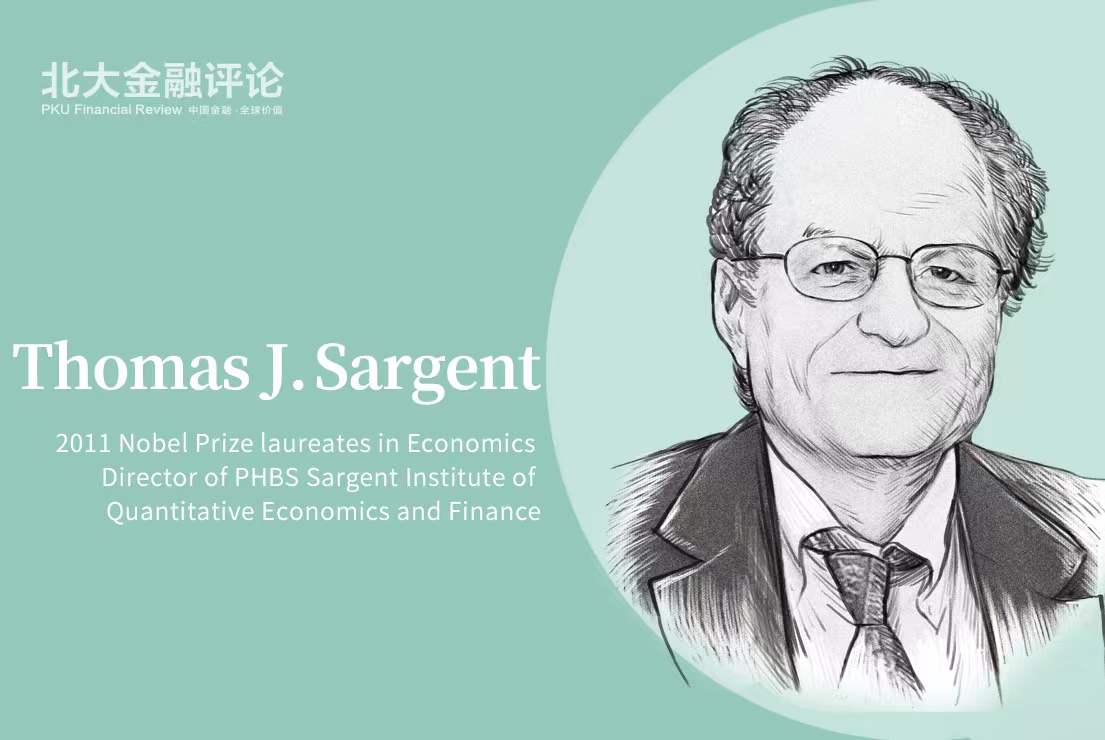Co-hosted by Peking University HSBC Business School (PHBS) and Shenzhen Finance Institute at the Chinese University of Hong Kong, Shenzhen (SFI, CUHK-Shenzhen), and organized by Center for Macroeconomy and Finance at Peking University and Center for Macro-Financial Stability and Innovation at SFI, the 2nd PHBS-CUHKSZ Economics and Finance workshop was held on June 11 at PHBS. This year’s workshop attracted more than 160 scholars from world-class universities in China, the United States, and Singapore, among others, to have in-depth discussions on the latest academic topics in the fields of economics and finance.
The workshop kicks off
Professor Wang Pengfei gives opening remarks
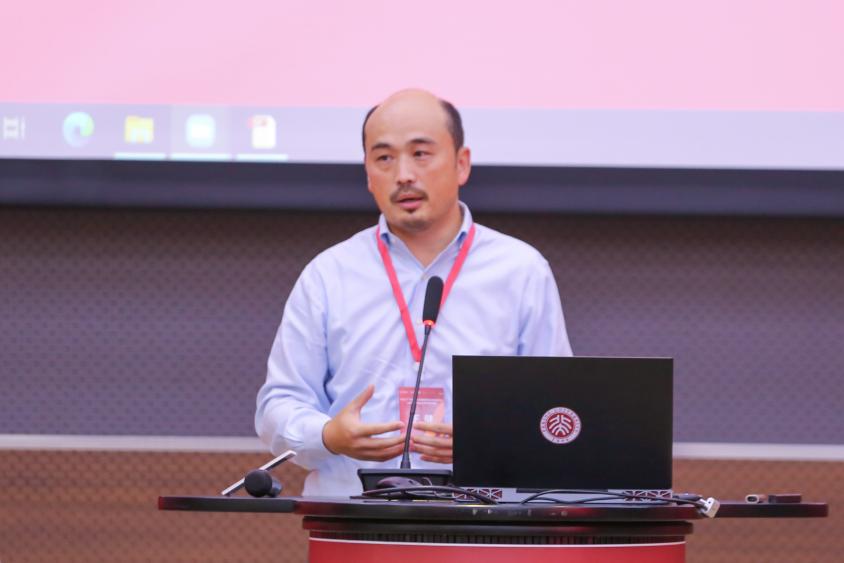 Professor Wang Jian delivers opening remarks
Professor Wang Jian delivers opening remarks
Wang Pengfei, vice chancellor of PKU Shenzhen Graduate School and dean of PHBS and Wang Jian, associate director of Shenzhen Finance Institute, delivered opening remarks. Professor Wang Pengfei expressed his gratitude to the faculty, staff, and student volunteers for their efforts in organizing this workshop and hoped that this event could continue to strengthen the relation between two schools and to keep track of academic advancements. Professor Wang Jian held that this conference is a precious opportunity for face-to-face interactions among scholars. He hoped that it could become an excellent academic platform for Shenzhen and even for the whole China.
Xiao Chong, associate professor of PHBS, presides over the workshop
Yu Yongding, Ph.D. in Economics from Oxford University, academician of the Chinese Academy of Social Sciences, member of the State Planning Commission, and former member of the Monetary Policy Committee of the People's Bank of China.
Dr. Yu delivered a keynote speech titled " China's Growth and Macro-Regulation over the Past 40 Years: The Formation of Judgment." Professor Yu systematically reviewed the evolution of China's economic policies over the past 40 years since the reform and opening up. He pointed out that though China confronted different challenges at every period, including foreign exchange shortage, inflation, and deflation, its macroeconomic policies proved successful in general. Dr. Yu also discussed some shortcomings of China’s macro regulations. He concluded that the 10-year slowdown of China’s economy could not be entirely attributed to long-term structural reasons and that we must keep pursuing the goal of stable growth.
Zhao Lingxiao
Zhao Lingxiao, assistant professor of PHBS, presented her paper “Winners from Winners: A Tale of Risk Factors,” coauthored with Siddhartha Chib and Zhou Guofu. Starting from the twelve distinct factors from the existing papers, plus twelve principal components of anomalies unexplained by the initial factors, a Bayesian comparison of approximately 17 million models in terms of marginal likelihoods and posterior model probabilities shows that eight initial factors plus three non-consecutive principal components are the best supported risk-factors. Zhao pointed out that their model scan methodology could be used for computing expected returns, assessing investment strategies, and building portfolios. He Ai, assistant professor from the University of South Carolina, gave suggestions on the economic interpretation of principal components in the paper.
Wang Yicheng
Wang Yicheng, assistant professor of PHBS, presented his paper “Taxation and Entrepreneurship in the United States,” coauthored with Han Holter and Serhiy Stepanchuk. Using state-level tax variations across time to study the impact of tax progressivity on entrepreneurial activity, Wang found that there was a robust, negative relationship between tax progressivity and entrepreneurship. Based on quantitative analysis in a structural model, Wang pointed out that the model can account for empirical facts reasonably well, and heterogeneous agents would respond differently to tax progressivity changes. Zhang Lichen, assistant professor of the University of Hong Kong, suggested that it would be helpful to provide more economic intuition on how risk preference heterogeneity could affect the strength of return effect and insurance effect.
Lu Guangli
Lu Guangli, assistant professor of CUHK-Shenzhen, introduced his paper "Owner Culture and Pay Inequality within Firms,” coauthored with Jan Bena and Iris Wang. Based on a unique employee-employer matched dataset linked with firm ownership and immigrant records in Canada over the 2001 – 2017 period, the authors found that a firm owner’s cultural background could play a significant role in determining the within-firm pay inequality: firms owned by individuals from more individualistic countries tend to have a higher level of pay inequality. Pan Yihui, associate professor at the University of Utah, commented on the paper from the perspective of economic mechanism and suggested that within-country cultural variations could be taken into account as an alternative channel.
Ye Shuai
Ye Shuai, assistant professor of CUHK-Shenzhen, talked about his paper "How Urbanization Affects Regional Wealth Inequality: the Housing Channel,” co-authored with Hu Jiaofen. Using housing price data from China and the U.S., they found that low-price houses appreciate faster than high-price houses in the same city. Ye provided two explanations for fluctuations in house prices during the process of urbanization: firstly, the shift of the house price distributions enables more households to afford low-price houses; secondly, the location value of high-price and low-price houses would gradually converge. In addition, since most low-price houses are owned by less wealthy households, the faster appreciation of low-price houses would mitigate wealth inequality. Qian Wenlan, professor of National University of Singapore, discussed several potential issues with respect to the authors’ proposed interpretation, such as wealthy households’ investments in low-price houses and the prevalence of rental households.
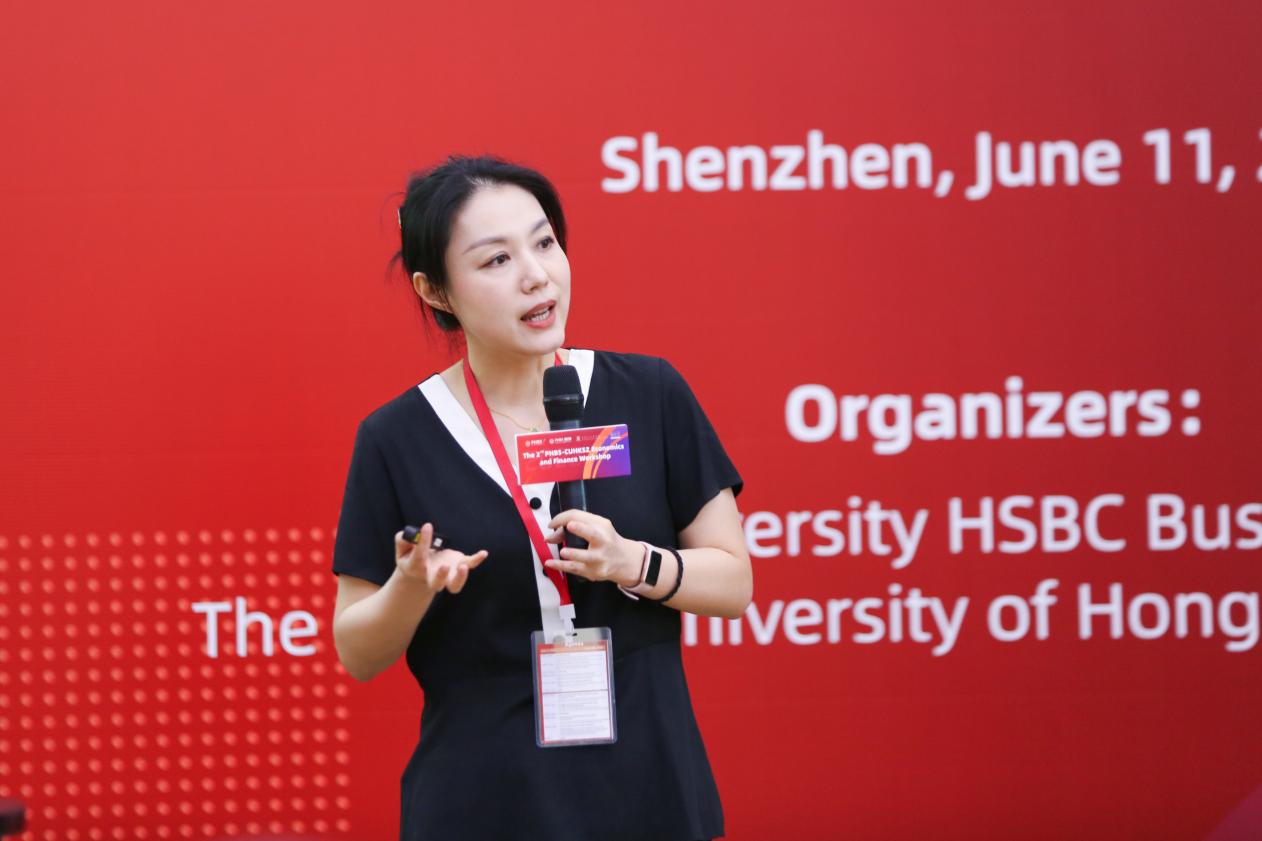
Shi Jiao
Shi Jiao, assistant professor of PHBS, introduced her paper "The Role of Exchange Rate in Monetary Policy Rules: A Welsh-based Re-examination." Using the standard two-country New Keynesian model, Shi investigated how exchange rate fluctuations could affect social welfare under demand shocks, monetary shocks, and financial shocks. In contrast to the conclusion from the optimal open-economy monetary policy literature, her quantitative analysis showed that exchange rate stabilization could improve welfare at low values of exchange rate targeting strength, but too strong a response could reverse the effect. She pointed out that the potential welfare gain from optimal exchange rate stabilization could be sizable, equivalent to 21-44% of perfect stabilization, and coordinated multilateral policies would be required to fully reap the gain. Xu Sichuang, assistant professor of the School of Economics and Management at CUHKSZ, gave suggestions on the relevance of wage gap mechanism, cross-country asymmetries, and implementation considerations.
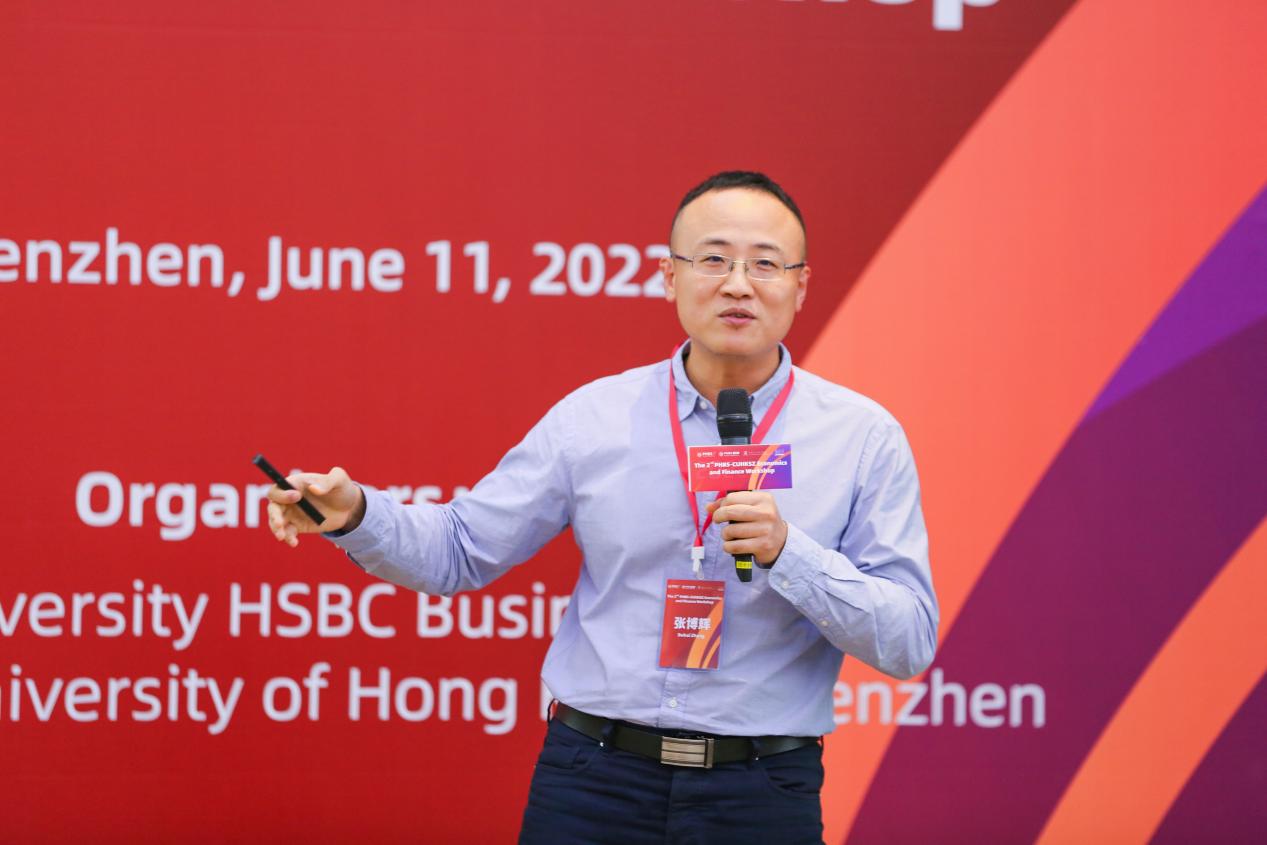
Zhang Bohui
Zhang Bohui, professor of the School of Economics and Management at CUHK-Shenzhen, introduced his paper “Sensing Economic Activities Based on the Laws of Thermodynamics,” co-authored with Huang Feng and Zhao Xiaofeng. Based on the correlation between the emitted heat and the economic output under the Carnot engine model, Zhang and his coauthors studied economic growth from a thermodynamic perspective. They used satellite data to track the emitted heat and measure economic activities, and show that a cities’ thermal infrared radiation (TIR) is positively related to its GDP, and correlation between TIR and GDP is stronger where the local productivity and energy efficiency are higher. Xu Zhiwei, associate professor of PHBS, provided a discussion on issues related to the study, such as economic activity counting, measurement error caused by pollution, and model setting.
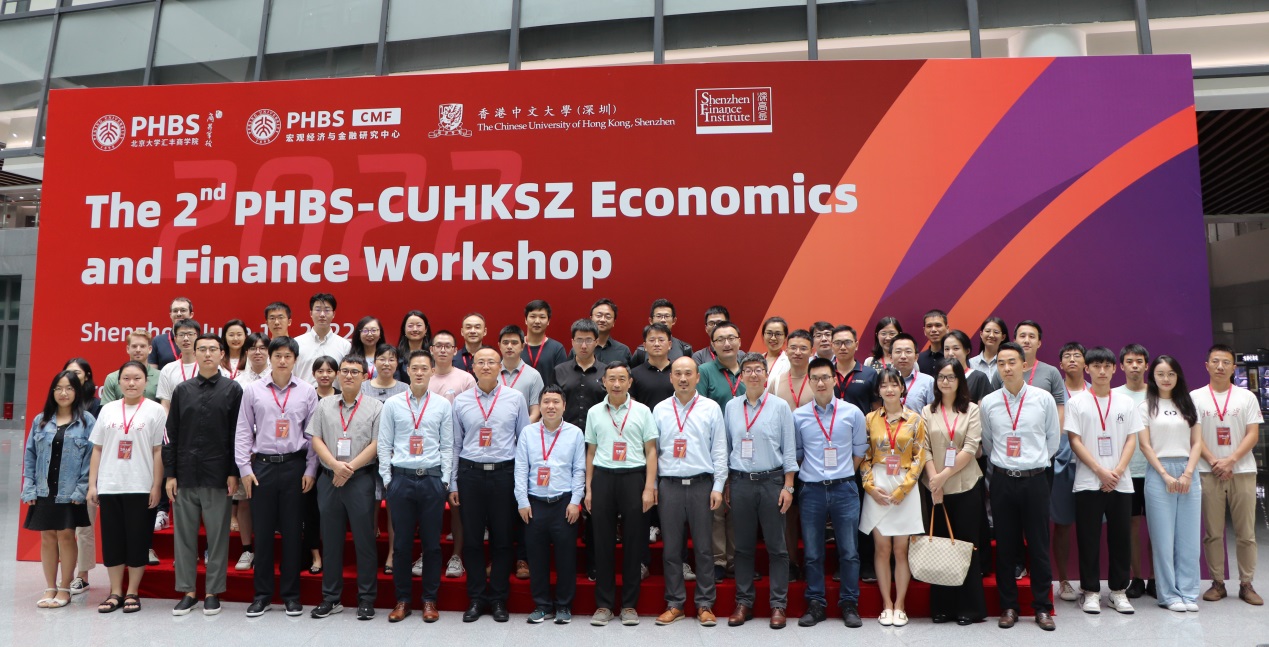
The PHBS-CUHKSZ Economics and Finance workshop is committed to stimulating the research potential of young scholars, facilitating academic exchanges among them, and promoting the academic development as well as research cooperation in the fields of economics and finance in the Guangdong-Hong Kong-Macao Greater Bay Area. Initiated in 2021, the first workshop was held at Shenzhen Finance Institute, CUHK-Shenzhen and will be held every six months by PHBS or Shenzhen Finance Institute, CUHK-Shenzhen.
Video of Keynote Speech:
https://www.bilibili.com/video/BV11N4y1N7ZW
By Annie Jin
Hu Chuan, Lin Tianye, Zhu Bairu, and Cao Yawen also contributed to the articlePhoto : Xiao Ban and UMi





